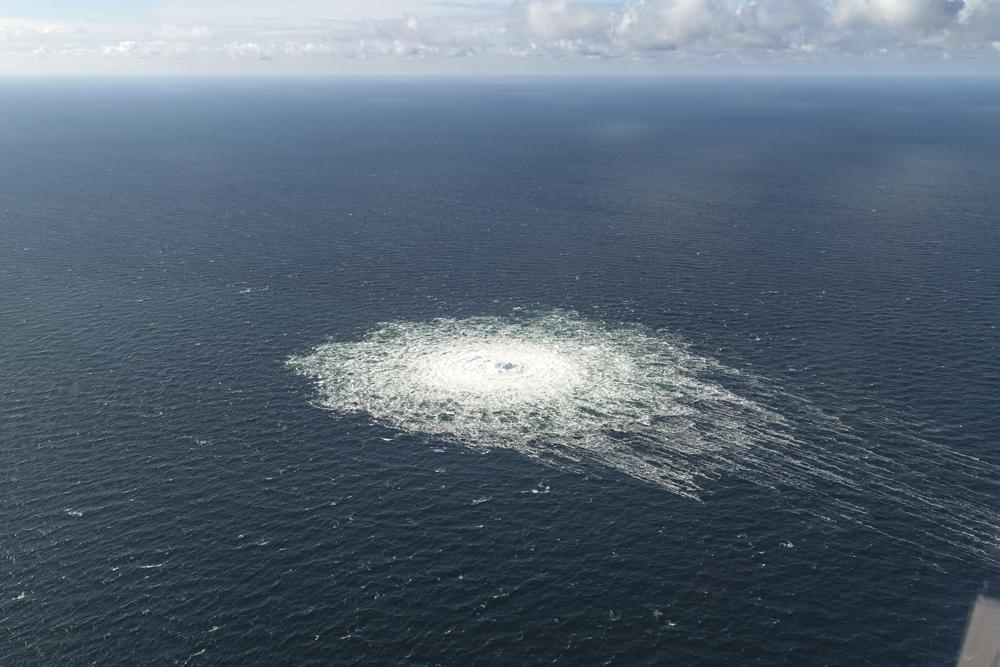Two undersea leaks that began in the Nord Stream 1 and 2 natural gas pipelines were likely caused by underwater explosions, according to seismographic data.
Bjorn Lund, director of the Swedish National Seismic Network at Uppsala University, told NPR Wednesday that it is “very clear from the seismic record that these are blasts.” Neither of the gas pipelines were active when officials reported sudden losses of gas pressure late on Monday, which they said could only be caused by significant leaks.





